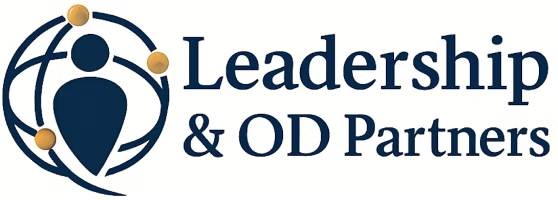A New Era of Work
We are living in a time when technology is not just supporting organizations — it is transforming them. Artificial Intelligence (AI) is reshaping industries, redefining roles, and rewriting the rules of engagement between people and organizations.
Yet at the heart of every transformation lies the same truth: people remain the core of success.
Organizational Development (OD) in the post-AI world is no longer about incremental change. It’s about building adaptive, human-centered organizations that thrive amid disruption.
What is Organizational Development (OD)?
Organizational Development has always been more than a set of HR practices — it is a systemic, science-based approach to building healthier and more effective organizations.
Cummings & Worley (2014, 2019) define OD as:
“A system-wide application and transfer of behavioral science knowledge to the planned development, improvement, and reinforcement of the strategies, structures, and processes that lead to organizational effectiveness.”
In simple terms: OD is about aligning people, processes, culture, and strategy — so organizations can continuously adapt and succeed.
📌 Update: The Latest View on OD
According to AIHR (2023), OD has evolved in the digital era and is now defined as:
“A strategic approach to improving an organization’s effectiveness, adaptability, and overall health. It’s a critical and science-based process that builds organizations’ capacity to change and achieve greater success by developing, improving, and reinforcing strategies, structures, and processes.”
This shows how OD has shifted from being primarily about planned behavioral-science interventions → to becoming a strategic capability for adaptability and resilience in today’s fast-changing environment.
Why OD Matters in the Age of AI
- AI automates tasks, but it cannot replicate empathy, creativity, or leadership.
- Organizations that fail to adapt risk disengaged employees, skill gaps, and cultural misalignment.
- Forward-looking OD enables leaders to reimagine structures, foster agile cultures, and unlock human potential alongside technology.
OD in Action
1. Microsoft – Building a Learning Culture
When Satya Nadella became CEO, Microsoft’s culture was criticized as rigid and competitive. Nadella’s OD-driven cultural reset — grounded in growth mindset, empathy, and collaboration — helped fuel innovation and restore financial performance.
2. Unilever – Empowering Employees with AI
Unilever leverages AI tools to match employees with learning opportunities and internal projects. Yet their OD approach ensures that employee voice, inclusion, and well-being remain central. Technology is treated as an enabler, not a replacement.
3. Volvo – Redesigning Jobs in a Digital Era
Volvo integrated automation into its manufacturing plants but invested in job enrichment rather than layoffs. Workers were reskilled, roles redesigned, and morale strengthened. OD interventions ensured that humans and machines co-created value.
The Future of OD in a Post-AI World
Forward-thinking organizations will embrace OD as a strategic necessity in the age of AI. Key shifts include:
- Agile Structures → Moving from rigid hierarchies to fluid, cross-functional teams.
- Skill Evolution → Developing not only digital capabilities but also uniquely human skills like critical thinking and emotional intelligence.
- Culture as Strategy → Treating culture as the foundation of resilience, innovation, and performance.
- Inclusive Leadership → Leading with transparency, empathy, and inclusivity while integrating technology.
From Insight to Action
The post-AI future isn’t something to fear — it’s an invitation to reimagine how organizations thrive. Companies that succeed will be those who place people at the center of transformation while embracing technology as a strategic partner.
Your Next Step:
If you’re ready to future-proof your organization and lead with confidence in this new era, let’s talk. Whether you want to reshape culture, prepare leaders for change, or align your strategy with the future of work — we can partner to design an OD strategy that delivers measurable impact.
Contact us today to begin your organization’s transformation journey.
References
- Cummings, T. G., & Worley, C. G. (2014). Organization Development and Change (10th ed.). Cengage Learning.
- Cummings, T. G., & Worley, C. G. (2019). Organization Development and Change (11th ed.). Cengage Learning.
- AIHR. (2023). What is Organizational Development? Academy to Innovate HR. Retrieved from www.aihr.com
- Schein, E. H., & Schein, P. A. (2017). Organizational Culture and Leadership (5th ed.). Wiley.
- Nadella, S. (2017). Hit Refresh: The Quest to Rediscover Microsoft’s Soul and Imagine a Better Future for Everyone. Harper Business.
- Deloitte Insights. (2023). The Future of Work in an AI-Powered World. Deloitte University Press.
- McKinsey & Company. (2021). The State of Organizations: Rethinking Organization Models in a Digital Era. McKinsey Global Institute.
